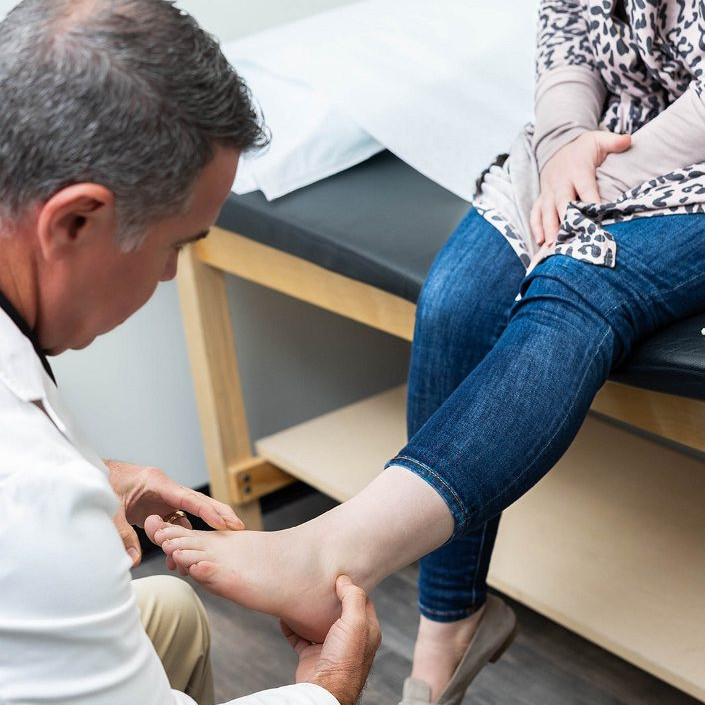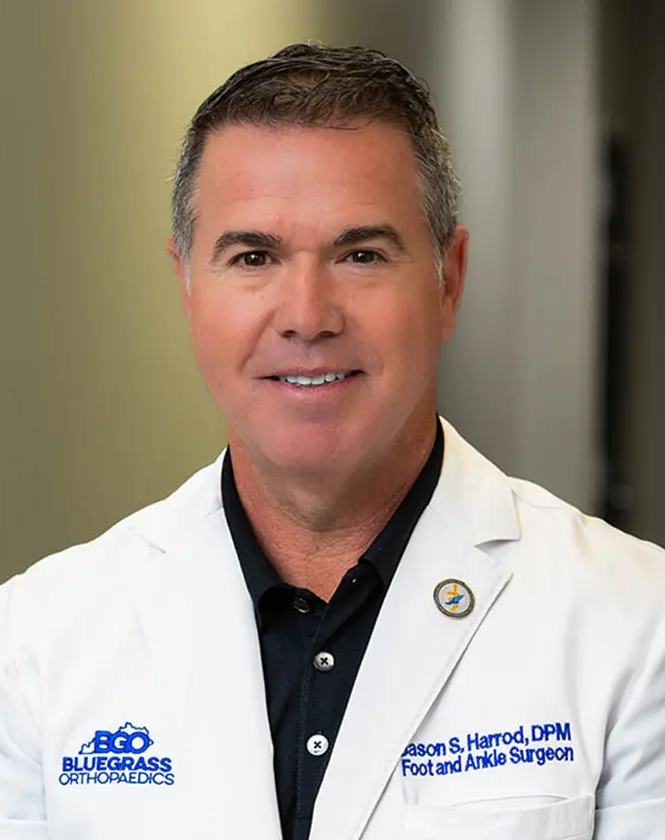When to See a Foot & Ankle Specialist
Persistent pain or limited function in the foot or ankle should never be ignored. Consider scheduling an appointment if you experience:
Consider scheduling an appointment if you experience:
- Pain, swelling, or stiffness in your foot or ankle
- Difficulty walking or bearing weight
- Aching, bruising, or tenderness
- Tingling, numbness, or burning that radiates into the foot or toes
- Trouble fitting into shoes due to deformity or swelling
- Pain that interferes with sleep or daily activities
Common conditions we treat include:
- Ankle sprains and instability
- Achilles tendon injuries
- Plantar fasciitis
- Bunions and hammertoes
- Arthritis of the foot and ankle
- Sports injuries and fractures
- Achilles tendinitis
- Sports injuries
- Ankle fractures
- Calcaneus (heel bone) fractures
- Peroneal Tendinitis
- Stress fractures
- Turf toe
- Ankle impingement





